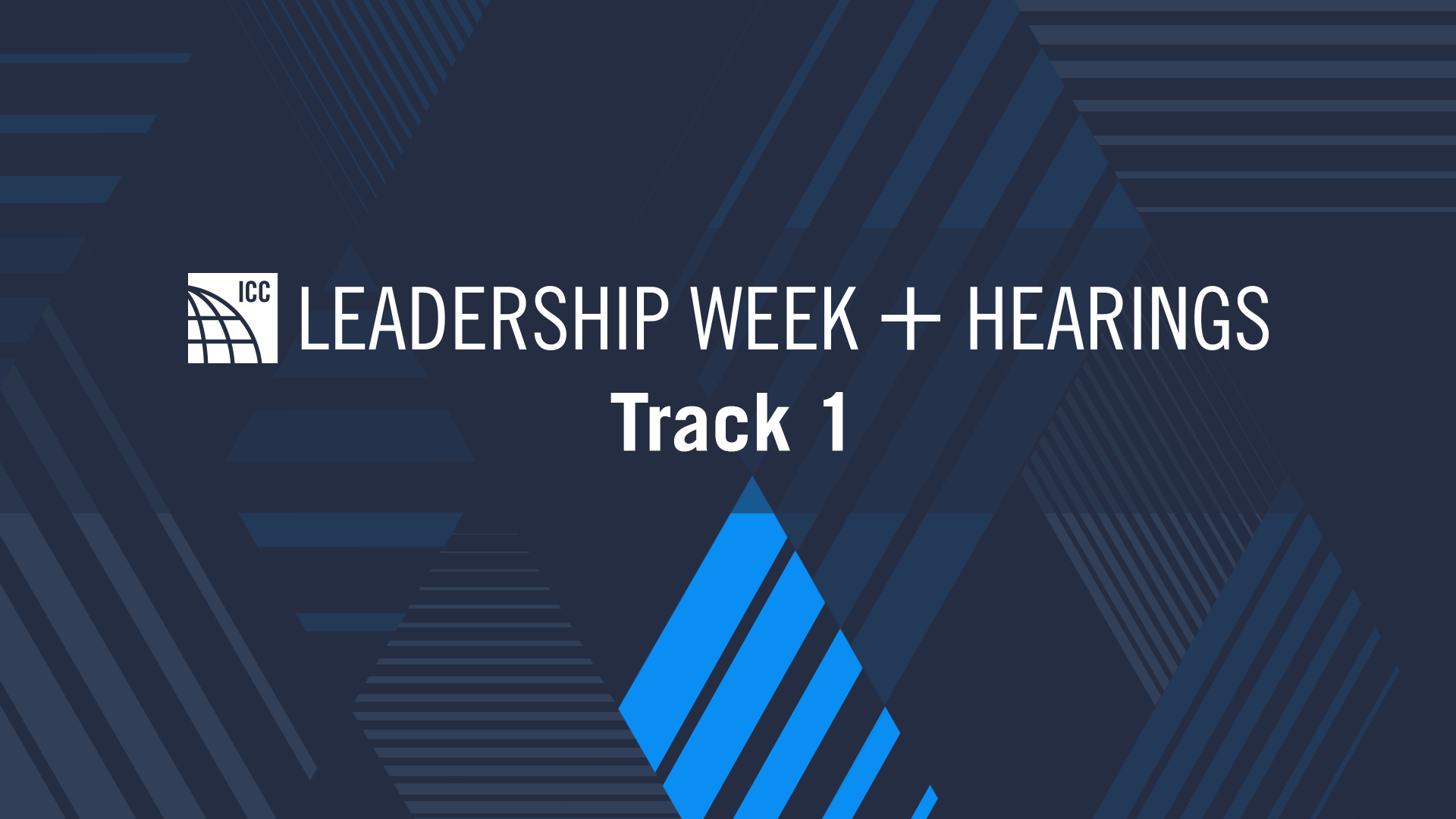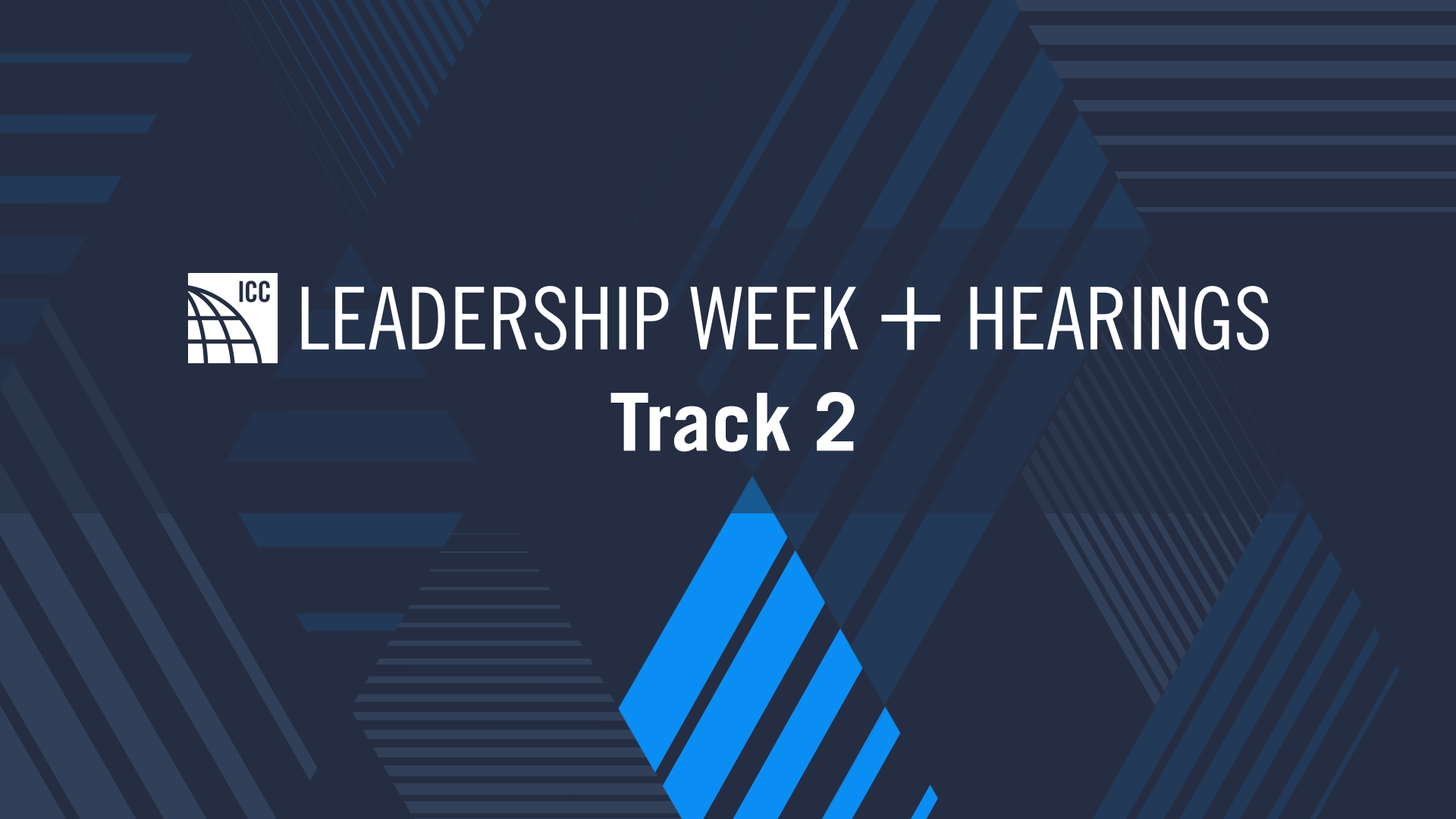Day: March 20, 2024
Chapter Webinars
Chapter Webinars
View quarterly webinars below to assist in planning, growing,
and maintaining your Code Council Chapter
The Quarter 1 Webinar focuses on submitting Chapter Annual Reports and the Chapter Benefits and Rewards Program. We also discuss the upcoming Chapter Leadership Academy.
2024 Quarter 1 Webinar – Quick References
Use these links to access more details on the webinar topics
Chapter Annual Report
- View informational page
- Step-by-step guide on filling out your report
- Step-by-step guide to viewing your benefits and rewards
- Quick reference for all benefits and rewards available for filling out your report
- List of part two questions
Chapter Benefits
- Chapter Education Benefit
- Registration to Annual Conference
- Designate your attendee here
- Registration and Travel Accommodations to the Chapter Leadership Academy
- Designate your attendee here
- Chapter Leadership Academy Registration
- Travel Policy
- Submit for travel reimbursement here
Chapter Rewards
- 50% off one ICC Training Day
- Contact ICC training to schedule: learn@iccsafe.org
- Submit for reimbursement here
- Complimentary Registration to Annual Conference or Chapter Leadership Academy
- Designate your attendee here
- $50 Rebate for ICC Products or Services
- ICC Gear and Accessories
- ICC Online Store
- Request your rebate here
Upcoming Chapter Webinars
- Quarter 2 – Thursday, May 16, 2024, 11 am–Noon CT
- Quarter 3 – Thursday, August 15, 2024, 11 am–Noon CT
- Quarter 4 – Thursday, November 21, 2024, 11 am–Noon CT
Chapter Quick Links
The International Code Council Board of Directors Makes Final Decision on 2024 IECC Appeals and Addresses Preemption Challenges
On March 18, 2024, the International Code Council Board of Directors voted to affirm in part and reject in part nine appeals filed by five appellants to a draft of the 2024 commercial and residential editions of the International Energy Conservation Code® (IECC®). The Board also addressed several claims that aspects of the draft 2024 IECC codes were preempted by the federal Energy Policy and Conservation Act.
The Appeals
The appeals were focused on the IECC’s scope and intent, consensus building approaches, procedural specific issues, and subject specific issues. The International Code Council Board of Directors determined that the scope and intent governing the 2024 IECC prohibited the inclusion of measures that did not directly affect building energy conservation within the base of the draft 2024 IECC, as the intent of both the commercial and residential 2024 IECC codes is limited to “providing minimum efficiency requirements for buildings that result in the maximum level of energy efficiency that is safe, technologically feasible, and life cycle cost effective considering economic feasibility, including potential costs and saving for consumers and building owners, and return on investment.” The Board further determined that alternative measures, including measures without direct impacts to building energy conservation, but that may reduce greenhouse gas emissions, could be included as appendix materials given the intent of both the residential and commercial IECC codes provides that “[t]he code may include nonmandatory appendices incorporating additional energy efficiency and greenhouse gas reduction resources.”
Based on this interpretation, the Board resolved that several challenged provisions that the Board viewed as concerning greenhouse gas reduction and not building energy conservation be removed from within the base of the draft 2024 IECC codes and placed in appendices to accompany the codes. The affected provisions moved to an appendix include:
- Sections C406.1.1.1 and C502.3.7.1 (heat pump products)
- Sections C403.4.6, C404.10, C405.2.8, R403.5.4 and N1103.5.4 (demand response)
- Sections C405.14, R404.7, and N1104.7 (electric vehicle charging infrastructure)
- Section C405.16 (electrical energy storage system readiness)
- Sections R404.6 and N1104.6 (solar readiness)
- Sections R404.5 and N1104.5 (electric readiness)
Preemption
The Board also considered concerns voiced by the Air-Conditioning, Heating, and Refrigeration Institute (AHRI) that provisions in the draft IECC codes were federally preempted by the Energy Policy and Conservation Act. Where the Board determined there was a significant risk of preemption based on case law or the Board had concerns about the ability to comply with provisions using minimum efficiency equipment, the Board decided to move those provisions to a resource with a cautionary note regarding the risk of preemption. Affected provisions include:
- Appendix CG (all-electric commercial) and Appendix RE (all-electric residential): moved to resource due to significant risk of preemption based on case law
- Appendix CD Section CD101.1 and Table CD101.1 (prescriptive glide path to net zero): moved to resource due to significant risk of preemption based on an inability to comply with minimum efficiency equipment
- Appendix RG (glide path to net zero): retained as an appendix with a cautionary note regarding the limited compliance options for minimum efficiency equipment in specific climate zones
Finalization of the 2024 IECC
The Board’s determinations mark the conclusion of the 2024 IECC’s development and the code’s finalization. The 2024 IECC builds on the 2021 edition and is anticipated to improve energy efficiency by roughly 6.5% for residential buildings and by 10% for commercial buildings. For jurisdictions seeking to incorporate additional greenhouse gas reduction measures, the code will contain new options for electrical vehicle charging infrastructure, energy storage systems, electric readiness, and demand responsive controls. The Code Council deeply appreciates the extensive work of the 2024 IECC development committees and stakeholders who participated in the development process and the subsequent appeals.
Utah Adopts Off-site Program Based on International Code Council Standards
Utah’s governor has signed into effect a bill that establishes a statewide off-site construction program based on ICC/MBI 1200 and 1205.
International Code Council Signs MOU with the Hydraulic Consultants Association Australasia to Promote Global Impact
The International Code Council and the Hydraulic Consultants Association Australasia (HCAA) signed an MOU to support and promote plumbing initiatives on a global scale.
Utah Adopts Off-site Program Based on International Code Council Standards
Salt Lake City, Utah – On March 19, 2024, Governor Spencer Cox signed into effect a bill to create a statewide off-site construction program based on joint standards created by the International Code Council and Modular Building Institute (MBI). This bill is an effort to boost affordable housing and leverage advanced technologies and practices. Utah joins 39 other states in regulating off-site construction at the state level to support consistency and efficiency in the process. It’s the first state to establish such a program in over 25 years.
ICC/MBI Standards 1200 and 1205 are part of ICC/MBI’s existing series of off-site construction standards. Standards in the 1200 series address the entire life cycle of off-site construction projects from design and fabrication through approval and inspection. More information can be found here. Salt Lake City previously adopted ICC/MBI 1200 and 1205 in 2021.
Utah is aiming to combat the affordable housing crisis it faces and sees off-site construction as part of the solution. This new program will help facilitate the efficient use of off-site construction throughout the state and create a regulatory path for modular home builders.
Benefits of using off-site construction include accelerated project timelines, cost savings and improved project quality. Off-site construction also has lower wastage rates, resulting in environmental benefits and cost savings. States like Utah that are looking to address housing affordability issues can use off-site construction as a solution.
Those factors along with the job sites being safer for workers make off-site construction a great solution for states like Utah that are looking to address housing affordability issues.
The signing of this bill follows the strong support from stakeholders including manufacturers, homebuilders, Utah League of Cities and Towns, and code officials. Sponsored by Senator Fillmore and Representative Whyte and supported by the Utah Commission on Housing Affordability, this program will go into effect on May 1, 2024.
“Off-site construction has proven to be a great solution to the affordable housing crisis,” said Code Council Vice President of Innovation Ryan Colker. “This program will help improve the health, safety, affordability and welfare of the built environment in Utah, and the signing of this bill into effect emphasizes the state’s efforts to address the critical need for affordable buildings.”
More information on off-site construction can be found here.
###
About the International Code Council
The International Code Council is the leading global source of model codes and standards and building safety solutions. Code Council codes, standards and solutions are used to ensure safe, affordable and sustainable communities and buildings worldwide.



